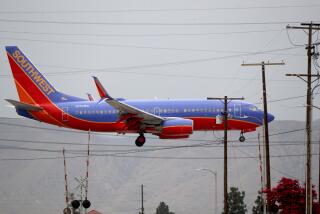After coronavirus: What your next group tour will look like

- Share via
If you’re a certain kind of traveler, you enjoy meeting like-minded people and you’re happy to leave the details of planning to someone else. Conveyances such as buses or vessels, an easy way to see a city or the countryside, don’t give you pause — or they didn’t until recently.
But in the age of coronavirus, do you want to travel as a group, whizzing down the highways and byways together on a bus or bobbing on a small ship, eating together as a group?
Is our new need for social distancing the nail in the coffin of escorted trips?
As the Magic 8-Ball says, “Signs point to no.” So does James Moses, president and chief executive of Road Scholar, which emphasizes education and learning on its trips.
“Actually we have taken 2,000 new enrollments since the middle of March for the U.S. [trips], and we’ve taken 1,000 for international,” he said. That’s many fewer than in a normal year, he said, but remarkable when you consider that coronavirus was declared a national emergency on March 13.
When we venture out again, will we first turn to the all-American road trip? Will it be safe? Here’s what effect the coronavirus will have.
Group travel is a huge business. The 55 members of the U.S. Tour Operators Assn. generated $19 billion in business, serving nearly 10 million consumers, according to its 2018 statistics.
But in its short, savage spread, coronavirus has spared few, if any, travel providers.
“Like most things in travel, nothing is truly exactly as it has been before,” said Steve Born, chief marketing officer for the Globus family of brands, whose umbrella covers well-known tour companies Globus and Cosmos as well as Monograms and Avalon Waterways.
The need for safety mixed with anxiety about being away from home is nothing new, but the intensity of this crisis has fundamentally changed some of the familiar equations of group travel. Here is some of what you can expect:
• Group travel will be focused heavily on domestic travel this year and possibly beyond.
Because of uncertainty about international travel — some countries are requiring visitors to quarantine and other nations shut the door on foreign visitors — closer-to-home destinations have an extra appeal.
“There’s a huge boost in interest for the U.S., especially national parks,” said Jessica Jones, senior director of operations and partnerships at MT Sobek, an adventure travel company based in the Bay Area. “That is going to be a trend that continues through 2021.”
• Groups will be smaller to ensure social distancing.
The wheels on the bus will still go ‘round and ‘round, but the buses will be less fully occupied or there will be two buses where there used to be one.
MT Sobek won’t put “15 people in a van that seats 16,” Jones said.
Like aircraft with middle seats kept empty, tour buses with fewer travelers will enable social distancing but represent decreased revenue; adding more vehicles to help people keep their distance means increased expense. Is that sustainable? Will travelers pay the price? Jones said the company will find ways to offset costs, such as using the arrival airport as the meeting point rather than transferring travelers to another location. Or, Born said, a guest might choose a smaller group trip that has a higher price point.
• You may already know the people you’ll be traveling with.
Family trips continue to be popular, Moses said, especially grandparent/grandchild trips, and may be more so this year when it’s more important to know health history. Jones sees “private trips” — that is, family or groups of friends traveling together in one journey — as one way to increase travelers’ comfort level.
• Nature will nurture.
Those who have lived through the shutdown probably aren’t traveling so they can spend more time inside. “I think that being outside is something we intrinsically need right now,” Jones said. “It feels very healing ... to be able to get away from people, get away from news, turn off the phone, be in a beautiful landscape and have that time to connect.”
• Reducing the number of “touch points” will be a bigger plus for groups.
Think how many people you come into contact with in a day of touring, and you’ll realize that having someone who does that for you is a plus, Born said. For instance, having attraction tickets handed to you instead of having to wait in line and buy them reduces your contact with strangers.
Some Las Vegas resort hotels hope to open for Memorial Day. Social distancing means smaller crowds, but rooms will be less expensive for now.
• Part of a tour company’s “duty of care” now includes health.
Many people travel with a group because of the camaraderie, but being around strangers comes with more risk these days.
To calm those fears, “I would expect everybody would have to complete a significant questionnaire about health,” Moses said. Group members may be required to have their temperatures checked as well.
Psychological well-being will play a big role as well, Born said. Knowing you have an advocate who is never far away and the strength of an organization whose job it is to keep you happy and safe may bring a peace of mind, Born said, and that may be more important in this age of anxiety.
“We’re here as your advocate and champion,” Born said, “plus we are just a lot of fun.”
More to Read
Sign up for The Wild
We’ll help you find the best places to hike, bike and run, as well as the perfect silent spots for meditation and yoga.
You may occasionally receive promotional content from the Los Angeles Times.








